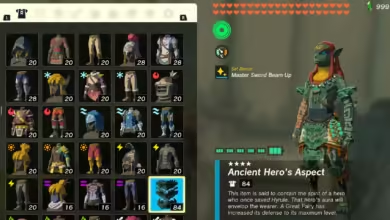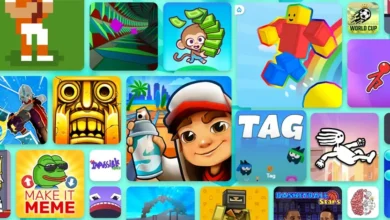Wordle Junior: Improve Spelling and Language Skills in a Fun Way

Introduction
If you’re looking for a fun way to boost your child’s spelling and language skills, look no further than Wordle Junior. This engaging game takes the beloved format of Wordle and tailors it specifically for younger audiences, making learning exciting and interactive. With its simple mechanics and colorful design, kids can dive into a world where letters become words, enhancing their vocabulary while having a blast. Whether they are working independently or with friends, Wordle Junior provides an enjoyable challenge that keeps them coming back for more! Ready to discover how this captivating game can make learning feel like play? Let’s explore what makes Wordle Junior a fantastic tool for improving spelling skills in children.
What is Wordle Junior?
Wordle Junior is an exciting adaptation of the original Wordle game, designed specifically for young learners. It transforms the popular word-guessing challenge into a kid-friendly format that sparks curiosity and engagement.
In this version, players are tasked with guessing five-letter words within six attempts. The twist? Clues help them figure out which letters are correct and in the right position. This interactive approach not only encourages critical thinking but also builds vocabulary skills naturally.
Colorful graphics and intuitive gameplay make it accessible for children of various ages. With every guess, kids gain confidence as they learn to recognize letter patterns and develop their spelling abilities without even realizing it!
Whether played solo or among friends, Wordle Junior turns language learning into a delightful adventure that keeps children entertained while enhancing their communication skills.
Benefits of Using Wordle Junior
Wordle Junior offers a delightful way to enhance language skills while having fun. It encourages children to think critically about word structures and spelling patterns.
Playing the game helps boost vocabulary. Kids encounter new words, which enriches their language repertoire. This exposure is beneficial for oral and written communication.
Another advantage is its ability to improve cognitive skills. The challenge of guessing letters engages young minds, sharpening their problem-solving abilities.
Additionally, it fosters teamwork when played in groups or with family members. Collaborating on guesses nurtures social interactions and builds confidence.
The game also promotes a love for learning through play, making education enjoyable rather than tedious. Children are more likely to engage with academic concepts when they have fun doing it.
By integrating Wordle Junior into daily routines, parents can create an enriching environment that cultivates both literacy and joy in learning.
How to Play Wordle Junior
Playing Wordle Junior is simple yet engaging. Start by selecting a mystery word from the provided list. This word can range from four to six letters, making it suitable for younger players.
Players take turns guessing letters in the target word. With each guess, they receive feedback: a green box indicates a correct letter in the right position, while a yellow box shows that the letter is present but not correctly placed.
After every attempt, utilize hints wisely to adjust your strategy. Encourage kids to think critically about their choices and learn new vocabulary through exploration.
The game continues until someone guesses the exact word or exhausts all attempts. It’s exciting and educational—perfect for family game night or classroom activities! Enjoying this fun twist on classic gameplay helps enhance spelling skills while fostering teamwork and friendly competition among players of all ages.
Incorporating Wordle Junior into Education and Learning
Wordle Junior can seamlessly fit into classroom activities and at-home learning routines. Teachers can use it as a warm-up exercise to spark enthusiasm for language arts. The game encourages kids to think critically about letters and word structure.
Parents can incorporate it during family game nights, making spelling practice enjoyable. By turning learning into a fun challenge, children become more engaged.
For educators, Wordle Junior serves as an excellent tool for building vocabulary. It allows students to explore new words while improving their spelling skills without the pressure of traditional methods.
Moreover, this interactive format nurtures teamwork and communication when played in groups or pairs. Children learn from each other’s strategies, fostering collaboration in a relaxed environment that promotes language development through playfulness.
Integrating this game into daily routines enriches both formal education settings and informal home environments alike.
Testimonials from Parents and Teachers
Parents are raving about Wordle Junior. One mom shared how her daughter went from struggling with spelling to confidently tackling new words each day. It’s become a beloved part of their evening routine.
Teachers are equally impressed. A third-grade teacher reported noticeable improvements in her students’ vocabulary and engagement levels. Her class eagerly awaits the daily challenge, turning learning into something they genuinely look forward to.
Another parent mentioned that playing together has strengthened family bonds while enhancing language skills. They enjoy the excitement of guessing letters and sharing laughs over the results.
The feedback highlights not just educational benefits, but also the joy Wordle Junior brings to both home and classroom settings. It’s refreshing to see children so motivated by an activity that feels more like fun than work.
Other Educational Games and Activities for Language Skills
Numerous educational games can enhance language skills. Scrabble is a classic choice, challenging players to form words and expand their vocabulary.
Boggle offers a fast-paced twist, where players search for words in a jumble of letters within a time limit. This game sharpens both spelling and quick thinking.
Another fantastic option is Pictionary, which encourages creativity while requiring players to guess words based on sketches. It’s great for fostering collaboration among peers.
Digital apps like Duolingo provide interactive lessons in various languages, making learning accessible anytime and anywhere.
Reading challenges also promote language development; setting goals to explore different genres keeps students engaged and excited about literature.
Incorporating these activities into daily routines can make language learning enjoyable while reinforcing essential skills naturally.
Conclusion
Wordle Junior is more than just a game; it’s an innovative way to enhance spelling and language skills while having fun. With its user-friendly mechanics, children can engage with words in an enjoyable manner that keeps them excited about learning.
The benefits are evident—boosting vocabulary, improving critical thinking, and fostering social interaction through friendly competition. Incorporating Wordle Junior into educational settings creates a dynamic atmosphere where kids can thrive.
Parents and teachers have shared their positive experiences. They appreciate how this tool makes learning effortless and entertaining for younger learners.
As we explore other games designed to strengthen language abilities, Wordle Junior stands out as a top choice because of its simplicity and effectiveness.
Embracing engaging tools like Wordle Junior enriches the learning journey for students everywhere. It transforms education into an adventure filled with exploration and excitement in every word!




